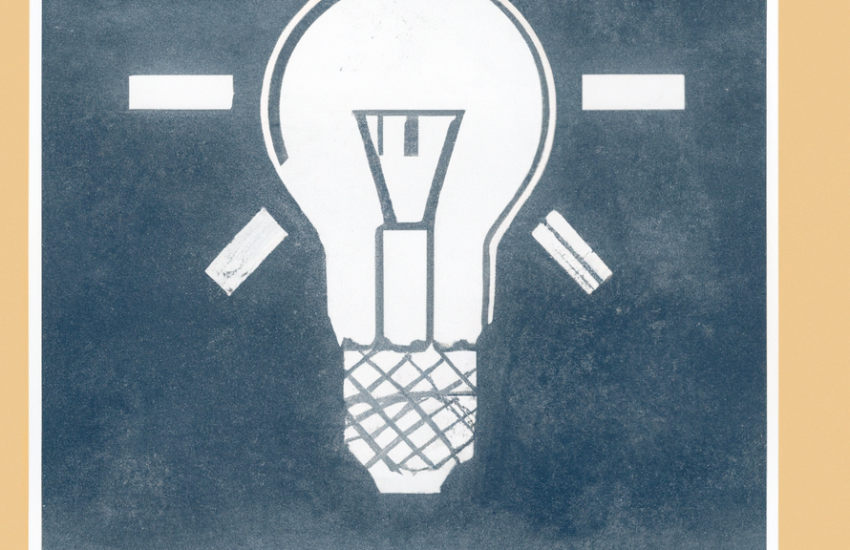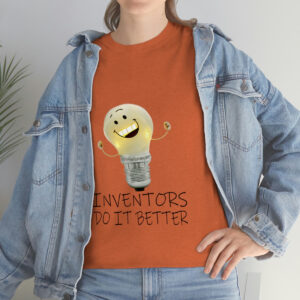THE BENEFITS OF LICENSING YOUR INVENTION: HOW TO PROFIT FROM YOUR INTELLECTUAL PROPERTY
Are you an inventor or product designer with a brilliant idea that you believe has the potential to change the world? If so, you may be wondering how to turn your invention into a profitable venture. One of the most effective ways to do this is by licensing your intellectual property. Licensing your invention can provide you with a steady stream of income while allowing you to retain ownership of your creation. In this blog post, we will explore the benefits of licensing your invention and provide you with tips on how to profit from your intellectual property.
So, whether you’re a seasoned inventor or just starting out, read on to learn how you can turn your invention idea into a lucrative business opportunity.
THE BENEFITS OF LICENSING YOUR INVENTION: HOW TO PROFIT FROM YOUR INTELLECTUAL PROPERTY
Innovation is the key to success in today’s world. Every day, new ideas and inventions are being created, and it is important to protect them. If you have an invention or an invention idea, it is essential to consider licensing it. Licensing your invention can provide you with numerous benefits, including financial gain, protection of your intellectual property, and the ability to focus on your core competencies.
One of the most significant benefits of licensing your invention is the financial gain.
- When you license your invention, you are essentially giving someone else the right to use your invention in exchange for a fee.
- This fee can be a one-time payment or a percentage of the profits generated from the invention.
- Either way, licensing your invention can provide you with a steady stream of income without having to invest in manufacturing, marketing, and distribution.
Another benefit of licensing your invention is the protection of your intellectual property.
- When you license your invention, you retain ownership of the intellectual property rights.
- This means that you can prevent others from using your invention without your permission.
- Licensing your invention also allows you to control how your invention is used and marketed, ensuring that it is used in a way that aligns with your values and goals.
Licensing your invention can also provide you with the ability to focus on your core competencies.
- As an inventor, your primary focus should be on creating new and innovative ideas.
- However, if you decide to manufacture, market, and distribute your invention, you may find yourself spending more time on these activities than on inventing.
- By licensing your invention, you can focus on what you do best – inventing – while leaving the manufacturing, marketing, and distribution to someone else.
So, how do you go about licensing your invention?
- The first step is to conduct a patent search to ensure that your invention is unique and not already patented.
- You can conduct a patent search on the United States Patent and Trademark Office (USPTO) website or hire a patent attorney to conduct the search for you.
- Once you have determined that your invention is unique, the next step is to create a prototype.
- A prototype is a working model of your invention that demonstrates how it works and its potential benefits.
- A prototype can help you attract potential licensees and investors by showing them the potential of your invention.
- After creating a prototype, the next step is to create a licensing agreement.
- A licensing agreement is a legal contract between you and the licensee that outlines the terms and conditions of the license.
- The licensing agreement should include details such as the duration of the license, the royalty rate, and any restrictions on the use of the invention.
- Once you have created a licensing agreement, the next step is to find potential licensees.
- You can find potential licensees by attending trade shows, networking events, and contacting companies that may be interested in your invention.
- You can also hire a licensing agent to help you find potential licensees and negotiate the terms of the license.
- When negotiating the terms of the license, it is important to consider the royalty rate.
- The royalty rate is the percentage of the profits generated from the invention that you will receive as the licensor.
- The royalty rate can vary depending on the industry, the complexity of the invention, and the potential market size.
- It is important to negotiate a fair royalty rate that reflects the value of your invention.
- In addition to the royalty rate, it is also important to consider the duration of the license.
- The duration of the license is the length of time that the licensee has the right to use your invention.
- The duration of the license can vary depending on the industry and the potential market size.
- It is important to negotiate a duration that allows the licensee to recoup their investment while also ensuring that you retain control of your invention.
In conclusion, licensing your invention can provide you with numerous benefits, including financial gain, protection of your intellectual property, and the ability to focus on your core competencies. To license your invention, you should conduct a patent search, create a prototype, create a licensing agreement, find potential licensees, and negotiate the terms of the license. By following these steps, you can profit from your intellectual property and bring your invention to market.
- Patent Licensing: Everything You Need to Know
The licensor gives up the right to the intellectual property, usually for a certain … Patent licensing lets you profit from the rights to your invention. - Selling your patent: What you need to know | LegalZoom
Mar 24, 2023 … A patent which grants ownership of an invention, but it won’t pay you. … To profit from your idea, you must sell the patent, license usage … - Frequently Asked Questions: Patents
Licensing a patent simply means that the patent owner grants permission to another individual/organization to make, use, sell etc. his/her patented invention. - 6 Ways to Profit From Your Patent
The value of your invention is completely in your hands. … Maybe the market for your intellectual property is diminishing or the technology is becoming … - Licensing your idea – mygov.scot
Nov 21, 2018 … Licensing could be a way to make money from your idea. You can use licensing if you own intellectual property rights. This includes:. - Trademarks, copyright and other intellectual property | ontario.ca
Nov 27, 2015 … inventions, for example products and processes; the original visual features of a product ; profit from selling or licensing your IP assets … - Intellectual Property Attorney Newport Beach| IP Licensing Lawyers
Nov 2, 2022 … License your IP with comprehensive legal protections. … an idea for a way to commercialize and profit from your intellectual property, … - Should You License or Manufacture Your Invention? | Nolo
This is where patent law often comes into play. Inventors must have some sort of intellectual property protection over their invention, which another person or … - How Much Is Your Invention Worth or How Much Should You Pay to …
May 24, 2021 … Licensing agreements are the cornerstones of technology companies based on intellectual property. A licensing agreement is a legal contract … - Invention Licensing Versus Manufacturing – FindLaw
Contact a qualified business attorney to help you identify how to best protect your business’ intellectual property. Your location (city, ZIP code or county).
Interesting facts about The Benefits of Licensing Your Invention: How to Profit from Your Intellectual Property
- The first patent law in the United States was passed in 1790, and it granted patents for a term of 14 years.
- Invention ideas can come from anywhere – some famous inventions were created by accident or as a result of experimentation.
- The process of obtaining a patent can take several years and requires extensive research, documentation, and legal expertise.
- Intellectual property rights protect not only inventions but also creative works such as music, art, literature, and software code.
- Licensing agreements allow inventors to retain ownership of their intellectual property while granting others the right to use it for specific purposes or under certain conditions.
- Royalties are payments made by licensees to licensors based on sales or usage of licensed products or services – they are often used as compensation for using someone else’s intellectual property.
- Patent trolls are individuals or companies that acquire patents solely for the purpose of suing other companies who may be infringing on those patents – this practice is controversial because it does not promote innovation but rather stifles competition through litigation threats.
- Many successful inventors have been able to turn their ideas into profitable businesses by licensing them out instead of trying to manufacture and sell them themselves

Are you ready to become an inventor?
Getting your idea out of your head and into your hands is only the first in a long set of steps towards becoming a successful inventor.

First Steps To A Successful Invention
At Invention Therapy, we believe that the power of the internet makes it easier than you think to turn your invention idea into a reality. In most cases, you can build a prototype and start manufacturing a product on your own. Changing your way of thinking can be difficult. Being an inventor requires you to balance your passion with the reality of having to sell your products for a profit. After all, if we can't make a profit, we won't be able to keep the lights on and continue to invent more amazing things!Please subscribe to our Youtube Channel!




